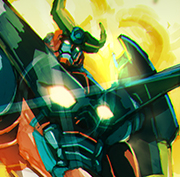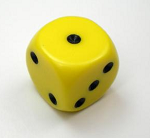|
S.J. posted:Who was it added by? Does the desire to add those game types come as a result of a negative play experience or a change done for preference reasons? Blizzard games are notoriously bad for long stretches of time for balance purposes in my experience. As far as DoA 3, uh, don't play it I guess? That doesn't contradict anything that I said I don't think. I actually would just generally never suggest playing a fighting game where gameplay bans like that need to be enacted outside of the fact that those kinds of games can be enjoyable despite themselves some times. If you could, at a relatively trivial expenditure of effort, correct a game, why wouldn't you? Yeah, if you're going "And also that doesn't work, so we'll patch that, and this is bad so that's out, and furthermore", you've got a poo poo ruleset, but if it's something like "The rulebook doesn't specify if you do positive or negative rerolls first but is otherwise my dream game system", why not just go "We'll do positives first"?
|
|
|
|

|
| # ? May 9, 2024 03:23 |
|
spectralent posted:If you could, at a relatively trivial expenditure of effort, correct a game, why wouldn't you? Yeah, if you're going "And also that doesn't work, so we'll patch that, and this is bad so that's out, and furthermore", you've got a poo poo ruleset, but if it's something like "The rulebook doesn't specify if you do positive or negative rerolls first but is otherwise my dream game system", why not just go "We'll do positives first"? That's a weirdly specific example, considering what I just posted. Sounds like that isn't a flaw that ruins your experience so keep at it. Or are you just going to keep coming up with less and less significant examples of game flaws in an attempt at finding a gotcha? You could also probably send the game creator an email or ask other people who play the game or whatever. I'm not telling you what to do, I'm telling you what I don't think people ought to be expected to do. I don't want people to feel like they need to play amateur game designer, and it's usually only serious kinds of gameplay problems where that becomes an issue. If I find a problem with a game that is trivially easy to fix, the first thing I think is, 'Why didn't they?' followed by 'What other stuff am I going to find after this?' S.J. fucked around with this message at 20:04 on Aug 19, 2016 |
|
|
|
I think it should be an expectation of game designers to not leave holes or power combos in their systems but also that this is hard and there sometimes are some, at which point it's probably easier to go "This thing is dumb so we won't play with it" rather than play a game being really annoyed at a given niggle. EDIT: Okay, so an actual example: Patton in flames of war is crazy good and you probably shouldn't play with Patton. The newest Bulge rulebook removes the problematic ability (A free pre-game recce move for everyone in his LOS). Flames is otherwise generally fun. I am far happier to abide by a Patton ban than I am to tear my rulebook up.
|
|
|
|
goatface posted:Don't engage in bondage play without having the conversation about boundaries first. Yeah, that's a mistake you only make once. ...or... ...or so I've been told. 
|
|
|
|
Honestly the reason that we end up in this situation is mostly because very few people buy the rulebook and sit down and read it with a friend and then launch into a game where they solve these issues directly. Much more likely is that they have friends who get into the game, or wander into a store where it is being played, and they join up with an existing group of people that is basically already running a discretely house-ruled and patched version of the game. This smooths over a lot, and it also means that people end up getting pretty far into the game without really realizing how bad things are. I know tons of people who bought an army before they had their own rulebook, because they were just taught to play at the store. The first time you run into a situation that your group hasn't already solved, chances are you've already got your army and you've been playing for a while. The idea that you should ditch this bad game and walk away might be right, but its difficult for people who have already made a practical and social investment in it. You just go, ok, we'll work it out. It's a situation that was really only viable because the GW games were mostly the only ones around, and it was very difficult to find anyone reliably playing other brands that existed in public venues and stores. If you decided you were sick of GW's stuff, you more often quit the whole genre than moved on to playing other games. That's changing now that GW keeps loving it up and other companies have been able to really produce and sell their own games; there are still tons of places where GW is what is happening, but its much more likely you'll find people who play other games as well and instead, and that makes dropping the bad game a real option for people.
|
|
|
|
spectralent posted:I think it should be an expectation of game designers to not leave holes or power combos in their systems but also that this is hard and there sometimes are some, at which point it's probably easier to go "This thing is dumb so we won't play with it" rather than play a game being really annoyed at a given niggle.
|
|
|
|
Ilor posted:Yeah, but we've already established that you'd be even happier playing Chain of Command. :P I have both 15mm and 28mm figures damnit Also that's another really good point because CoC is objectively better than anything in the universe, but for some dumb reason people still play bolt action and I've been unable to fix this.
|
|
|
|
Ilor posted:Yeah, but we've already established that you'd be even happier playing Chain of Command. :P The once every couple of years that me and my best friend are in the same state, that's our drinking song! https://www.youtube.com/watch?v=ALfOfG5XAro
|
|
|
|
It really sucks because I can't justify buying either BA-10s or IS-2s in 28mm if nobody's regularly playing CoC to use them in.
|
|
|
|
spectralent posted:I think it should be an expectation of game designers to not leave holes or power combos in their systems but also that this is hard and there sometimes are some, at which point it's probably easier to go "This thing is dumb so we won't play with it" rather than play a game being really annoyed at a given niggle. And that's certainly fine, but the point I've been making is that if something is bad enough to warrant banning then I don't feel okay recommending it as a product. You don't have to tear your rulebook up to try and find something better, especially since, as you mentioned, new products can come out to fix those problems. spectralent posted:I have both 15mm and 28mm figures damnit I've heard generally negative things about Bolt Action on SA but I don't know much about it first hand. Any particular issues with it?
|
|
|
|
S.J. posted:Who was it added by? Does the desire to add those game types come as a result of a negative play experience or a change done for preference reasons? Blizzard games are notoriously bad for long stretches of time for balance purposes in my experience. I'm not sure if there's a specific group that pushed this, but professional players and tournament organizers have been calling for a restriction on hero stacking since the Overwatch betas. There are two main reasons for this: 1) certain heroes synergize really well with copies of themselves (Winston and Lucio are big ones), unbalancing the game and effectively requiring teams to use these very-specific hero compositions to remain competitive; and 2) due to the overtime mechanics (where the attacking team can extend the duration of the match if they're on the control point), certain high-mobility compositions (usually involving D.Va and/or Tracer) allowed pro teams to stall matches indefinitely. Neither of these make for exciting matches for players to play or audiences to watch, so they were often banned in pro tournaments. Addendum: Later, Blizzard actually implemented the one-hero limit in their own competitive mode, partly as a result of the above "cancer comps" becoming popular even at lower levels of play. For the next competitive season, they're also eliminating the much-reviled sudden death mode (separate from overtime) due to very similar complaints as the above. If nothing else, Blizzard is at least putting forth effort to make their game amenable to competitive play, though they're often just adopting the things that the pro scene pioneered. Avenging Dentist fucked around with this message at 21:06 on Aug 19, 2016 |
|
|
|
Avenging Dentist posted:I'm not sure if there's a specific group that pushed this, but professional players and tournament organizers have been calling for a restriction on hero stacking since the Overwatch betas. There are two main reasons for this: 1) certain heroes synergy really well with copies of themselves (Winston and Lucio are big ones), unbalancing the game and effectively requiring teams to use these very-specific hero compositions to remain competitive; and 2) due to the overtime mechanics (where the attacking team can extend the duration of the match if they're on the control point), certain high-mobility compositions (usually involving D.Va and/or Tracer) allowed pro teams to stall matches indefinitely. Neither of these make for exciting matches for players to play or audiences to watch, so they were often banned in pro tournaments. Sounds like a good response to a legitimate problem, I'm glad to hear. Of course Blizzard would be stupid to ignore those kinds of issues. Lots of TG developers suck at fixing their games 
|
|
|
|
S.J. posted:And that's certainly fine, but the point I've been making is that if something is bad enough to warrant banning then I don't feel okay recommending it as a product. You don't have to tear your rulebook up to try and find something better, especially since, as you mentioned, new products can come out to fix those problems. I don't recommend people buy Patton either, so...  Flames is good if you're after company scale WW2 and want chunkier tanks than 6mm while not being ridiculous in scale. quote:I've heard generally negative things about Bolt Action on SA but I don't know much about it first hand. Any particular issues with it? Bear in mind it's been a while since I played, but off the top of my head: There's ridiculous incentives to take minimum-sized squads of everything. Units get pinned as squads, which are usually 5-10 men strong or so. Since the unit is pinned as a group, if you took two groups of 5 then you've mitigated pinning partially, whereas one 10 man group is testing for all those pins. Likewise, more units=more command dice, so you're more likely to get initiatives in the random draw at the start of the turn. This also leads to armies full of 2-men flamethrowers or soviet mine-dogs and poo poo because loads of tiny, cheap "cheerleader" units gives you command dice you can use on anything. Good lists thus look really bizarre. Range is really bizarre: Infamously you can't fire across pegasus bridge with the rifle-range in game, but conversely you can also somehow fire katyushas (a rail-mounted rocket launcher system with something like 10 degrees minimum elevation) at guys across the street. This also leads, in general, to loads of stuff that shouldn't be anywhere near the front lines showing up in-game. Taking LMGs on your squads is almost always a terrible idea; they're one extra dice and 6" more range for far more points and the consequence of losing two men if the gun's KO'd. It's TLOS and no-premeasure, for no real good reason. Artillery is incredibly swingy; you usually fire and do a couple of pins, but on a 1/6 (or 1/36? can't remember) chance you'll kill something like 2d6 men instead. And on a 1/6 chance your opponent gets to plonk it on you. I'm sure there's more stuff, that was all things I remember being annoyed by last game.
|
|
|
|
Yeah, for me the main lesson from Overwatch is that it's ridiculously hard to get game balance right the first time, since high-level competitive players will push your system to its limits and probably find fundamental weaknesses that you never even considered. Hero-stacking (having multiple of the same hero on a team) was apparently once considered a core concept in Overwatch's design, but they had to remove it from the competitive format because of how badly it hosed with the meta. Pro players and tournament organizers are often the first to discover these issues, so it's pretty common for them to implement house rules to fix things; sometimes you can do that with in-game options, but other times it's just a rule players have to follow or be disqualified. Good game companies should definitely follow the tournament scene and do what they can to address the issues they find (while still recognizing that most people don't play at that level), since these problems just grow as more of your players learn about the flaw in your game. For games like 40k, netlists basically make game-breaking combos accessible to even the most inexperienced players.
|
|
|
|
Avenging Dentist posted:Yeah, for me the main lesson from Overwatch is that it's ridiculously hard to get game balance right the first time, since high-level competitive players will push your system to its limits and probably find fundamental weaknesses that you never even considered. Hero-stacking (having multiple of the same hero on a team) was apparently once considered a core concept in Overwatch's design, but they had to remove it from the competitive format because of how badly it hosed with the meta. Yeah I mean that's especially obvious the more complex and interactive the game is and how hard it can be to get data from beta testers vs a wide release. But I feel completely comfortable just shelving a game like that until the problems get fixed. If they don't, oh well. Sometimes that happens. With digital games from a reputable company you can usually expect updates to fix problems (or in Blizzards case sometimes just make new ones heh) but with TG games it can be a real crap shoot. There are a ton of TG games I could recommend for that kind of competitive experience though so I don't have much of an incentive to tell someone to keep at a bad game or pick up a bad game despite its flaws. Good games have flaws too but those flaws aren't serious enough for it to require a fix. If you want to play through those flaws anyway that's on you, but 40k does happen to be a great example of an entire culture based around playing amateur game designer coupled with a large part of the participants who are willing and ready to call you morally inferior for engaging with the game as it actually exists as opposed to how we might want it to exist.
|
|
|
|
It's one thing to say, "We added a turn limit to Frostgrave," and another to say, "We removed fully 25% of the 40k rule set." A small amount of (usually "high-level") patching to a game is fine for me, but when you start having to effectively rewrite the game, that's when you should think that maybe it's time to play a different game. This applies even if you stand to benefit from the game's lovely balance (e.g. you have the most overpowered army in 40k right now); once you've beaten the game mechanics themselves, is there even any point to playing? At that point, it's just complicated tic-tac-toe.
|
|
|
|
Avenging Dentist posted:It's one thing to say, "We added a turn limit to Frostgrave," and another to say, "We removed fully 25% of the 40k rule set." A small amount of (usually "high-level") patching to a game is fine for me, but when you start having to effectively rewrite the game, that's when you should think that maybe it's time to play a different game. This applies even if you stand to benefit from the game's lovely balance (e.g. you have the most overpowered army in 40k right now); once you've beaten the game mechanics themselves, is there even any point to playing? At that point, it's just complicated tic-tac-toe. Honestly the problem with that (the high level patching) is that those problems are almost always just as bad, if not worse, for people playing at a low level in large part because they will stumble upon it by accident and not fully understand the problem at hand, combined with their opponents probably having no idea how to deal with the problem either.
|
|
|
|
Captain Rufus posted:Guess what? The vast majority of people play this way. Good games accept the truth that people are shitlords and minimize the inherent douche so their games sell for longer times because they understand most people want to win and if there is an easy mode they are gonna take it and love it, provided the other side can't of course. ( This naturally leads to most people leaving the game. Most games die out shortly after the ULTIMATE STRATEGY is discovered. Because the game is then poo poo or a dice fest once everyone left plays the exact same lovely way which is normally unfun. ) I remember how quickly the Overpower CCG scene died in my town when people figured out the best deck by far was a premade started deck you could get for like 10 dollars then substitute one hero and a handful of cards, or don't even bother and have it still be able to beat 90% of the decks already. It went from people saying ooh I like this hero I wonder how he combos with this other hero to oh your playing this deck? I lose thanks for the game because the balance was so lovely. It took under a week for the game to die in my area because we had so few people playing it to start with and no one wanted to play the exact same deck against each other and have it mostly come down to who draws what it was really sad. It also killed peoples desire to buy packs as well because why bother when all you need is the starter which pissed off the local shop owners who got stuck with stock no one wanted.
|
|
|
|
S.J. posted:Honestly the problem with that (the high level patching) is that those problems are almost always just as bad, if not worse, for people playing at a low level in large part because they will stumble upon it by accident and not fully understand the problem at hand, combined with their opponents probably having no idea how to deal with the problem either. Sorry, I wasn't really being clear; I meant "high-level" as in touching something at a high level in the game's architecture. Basically, stuff defining the general structure of the game (turn length, leveling up, etc), and not stuff like individual point values or damage for each weapon. If the low-level mechanics aren't solid, you'd probably be better served by finding a game with better mechanics, but if the only problem occurs at the periphery (e.g. the end of a match), that's typically easier to isolate and fix. It's also usually easier to explain to other people; if I say, "We use <some system> for allocating D&D ability scores", that's a lot easier to adapt to than being given a table that overrides all the standard weapons in the Players' Handbook. I guess another way to put it is, "It's only worth houseruling for a game if the house rule is a simple tweak that just touches a small part of the actual game." Avenging Dentist fucked around with this message at 21:52 on Aug 19, 2016 |
|
|
|
When I play games with my friends and I'm losing I'm usually having fun anyway, because being challenged in a game is fun, and the only way an opponent can take away my fun in a game is by being an rear end in a top hat. Nothing an opponent can do within the rules in a well-designed game is fun-removal for me, because hey, normal well-adjusted people do not literally feel bad about game things happening to them in a game. Also I enjoy playing some games because of the evocative details, clever pieces, interesting themes, etc. Sometimes my opponent is less important to me than just discovering the interesting things the designers have put into a game. Also I often play co-op games like Lord of the Rings LCG, and in those games, when we utterly crush my opponent (the randomly shuffled encounter deck), whose fun, exactly, are we denying? I didn't pick Tomb Kings out of a desire to formulate the best possible strategy on the tabletop of 8th edition - I didn't even know the rules of 8th edition Warhammer when I picked Tomb Kings. I didn't know or especially care that, as it turns out, Tomb Kings relies heavily on a magic phase, using the hierophant to turn mediocre to terrible units into nearly competent ones with buffing and regen, has terrible cavalry, or whatever. I bought into Tomb Kings because egyptian undead dudes with a grudge is loving badass. You can joke about forging the narrative, and the reason that phrase is a joke is because Games Workshop and its defenders use it as an excuse for incompetent rules writing. But that is a shame, because why do we bother with having our games have colorful pieces, bits of fluff text, artwork, history/fantasy/sci-fi themes, etc? Why does Chess have a rook and a bishop and a knight, instead of Piece 1, Piece 2, and Piece 3? The discussion originated with the correct, but massively over-repeated assertion that the burden of designing a fair and balanced game should be placed on the game designers, and not unfairly applied to an opponent - that is, it's not fair to get angry with an opponent for making use of the rules of the game as they were written, to attempt to achieve the game's objectives as written. This is true, but also a thing that has been endlessly pointed out in this thread for literally years, and really not worthy of being ranted about even more. What I think is worthy of pointing out, as much as possible, is that the "point" of a game is different for different people. For some, it's merely a conversation-starter, an activity around which social engagement can be structured. For others, it's an intellectually challenging pursuit, a way of stimulating strategic thinking, puzzle solving, etc. Another purpose of games is to engage competitively with other people in a contest of pure skill, pure luck, or (most commonly) some combination of those two. Another is to fiddle with cleverly-desgined, attractive, beautiful, intriguing, or evocative components, themes, fiction, history, science, even architecture. Many games include a component of physical contest or undertaking, presenting the opportunity for the satisfaction that comes from physical excellence; strength, dexterity, etc. Often games can be learning experiences, teaching players about history, culture, science, or (especially) mathematical subjects such as statistics and probability. Games can be highly motivating. In my own line of work, a current trendy buzzword is "gamification" - encouraging customers and partners to engage with and complete educational material about our software products by awarding achievements for incremental progress, challenging them with quizzes or contests after completing each module to achieve the dual purposes of testing that knowledge and improving learning outcomes for people whose learning process is enhanced by repetition. To condense all of the above into a simple declaration that the singular purpose of engaging with a game is to win as effectively and ruthlessly as you possibly can is grotesque and sad. In an extremely limited context (playing competitive PvP in a tournament setting) it is - for this thread - a completely universally accepted notion that is totally redundant to repeat. In any other context it's wrong, either by degree (for competitive PvP in a non-tournament setting) or wildly wrong (for many types of games other than competitive PvP games, or in settings where winning the game is not the sole and overriding objective for one or both players).
|
|
|
|
The point of playing games in general is to have fun, sure, but the actual objective of any particular game with a victory condition is to win. Those are not mutually exclusive. Well designed games allow you to engage with them ruthlessly or without apology without putting either player in a totally negative experience. That also doesn't mean that winning has to be the objective of any particular game, either, or that victory in a game necessarily means that there is also a loser. S.J. fucked around with this message at 22:04 on Aug 19, 2016 |
|
|
|
The big problem with patching a game is the type of people who bloviate about DESIGN FLAWS and poo poo like they know what the gently caress they're talking about. "Let's borrow LoS rules from Warmachine and use them in this GW game" is one thing, but normally the patching fucks up things even worse.
|
|
|
|
S.J. posted:The point of playing games in general is to have fun, sure, but the actual objective of any particular game with a victory condition is to win. Those are not mutually exclusive. The objective as printed in the rules is the "objective" within the context of the rules, yes. But, the objective for the players usually goes beyond that. When I invite my buddy over for a game of Epic, my personal objective is to spend time with my friend; enjoy imagining the battle; check out his new models; show off my new models; imagine the little miniature lasers going pew pew pew; and, absolutely last on the list, win the game, if I can. I feel confident that's similar to his own goals, particularly since I usually win. Neither of us has ever gotten upset about anything that happens in our games of Epic. When my assault is poorly planned and he brings in a flanking attack with crossfire that completely wipes out that formation, I am not upset, I'm happy - I congratulate my buddy for the clever move, and feel good about learning something. Both of us know he won't catch me out in exactly that way again, and I think we both enjoy that. Let me relay another anecdote. My little brother had a really hard time at first, when my dad got him a Sega Genesis for his ~8th or so birthday. It came with Altered Beast, and early on we also had Super Hang On, Sonic the Hedgehog, and a few other games. My brother would get incredibly frustrated every time he played, without fail, because every play session inevitably ended with failure. He did not literally beat the game his first try. He'd get worked up to the point of crying. When I asked him what was wrong, it was really hard for him to explain, but eventually what I got from him was this exact quote: "the point is to win!" He did not understand. The point was not to win. The point was to enjoy engaging with the challenge, but also the graphics, the design, the story, the cute little blue hedgehog character. Yes, absolutely, you extract enjoyment in part by doing better each time, going farther, beating another level, whatever. But I have owned hundreds of computer games in my time, and actually "won" or completed maybe a handful at most. I don't buy or play games "in order to win," although trying to do well is certainly a basic assumption of those games. When I play a competitive boardgame with my buddies, I have an actual responsibility to play well, because it's insulting to deliberately throw a match out of some sense of sympathy or disregard - that's condescending. In games where a disparity of skill is quantifiable, a handicapping scheme can lead to satisfying matches, which is a good way to ensure an enjoyable engagement for both sides... so there's an exception to that, in that if I play golf against someone much better than me, it doesn't feel "condescending" for each of us to apply our handicaps to decide which of us "won." Although at the same time, if my opponent "loses" by two strokes, but has a much higher handicap than me, I know that he "really" won, in that he completed the course in far fewer strokes than I did. If the only point of a game was to win, why would you ever play it again, after winning once? You can immediately see that "the point is to win" is horribly inadequate and incomplete, even in a fiercely competitive environment. If I've beaten you once, but we decide to play again, then the point must be more than just to win; I must be interested in seeing if I can win even after you have learned something, or perhaps gotten better luck, or something. So we're already past simply achieving the stated objective in the rules of ending the game with more points than your opponent (or whatever). e. It also occurs to me that a big aspect of strategy games, for me, is testing theories - I may know that my best odds of winning come from doing X, but perhaps I'm bored with always doing X, so I try Y, or X+Y, or whatever... even if I'm sure it'll be less optimal, it may be "fun" for me to give it a shot anyway. According to the "always play ruthlessly and try to crush your opponent" maxim, I'm somehow "doing it wrong" by doing this. That's crazy. Leperflesh fucked around with this message at 22:17 on Aug 19, 2016 |
|
|
|
fnordcircle posted:The big problem with patching a game is the type of people who bloviate about DESIGN FLAWS and poo poo like they know what the gently caress they're talking about. You really can't patch GW games because the rules are broken from even the most basic function. Patching one thing just shows off multiple other areas of terrible rules. Fix those and yet more horrible balance issues become apparent
|
|
|
|
Leperflesh posted:The objective as printed in the rules is the "objective" within the context of the rules, yes. But, the objective for the players usually goes beyond that. When I invite my buddy over for a game of Epic, my personal objective is to spend time with my friend; enjoy imagining the battle; check out his new models; show off my new models; imagine the little miniature lasers going pew pew pew; and, absolutely last on the list, win the game, if I can. I feel confident that's similar to his own goals, particularly since I usually win. Neither of us has ever gotten upset about anything that happens in our games of Epic. When my assault is poorly planned and he brings in a flanking attack with crossfire that completely wipes out that formation, I am not upset, I'm happy - I congratulate my buddy for the clever move, and feel good about learning something. Both of us know he won't catch me out in exactly that way again, and I think we both enjoy that. Dude, c'mon. I already said that people play games in order to have fun. Obviously you are allowed to explore your own concepts of fun in whatever games you want, however you want. The entire context for the 'play ruthlessly' discussion was competitive games anyways (this entire discussion stemmed from WAAC stuff), and just because you want to screw around with your army list or whatever to find some new way to play doesn't change that. It's already been said, good games allow for a lot of experimentation in that space to account for the kinds of things you're describing. Adding personal objectives on top of established 'trying to achieve victory conditions' doesn't change that, but probably points to the game being well enough designed that you can feel confident exploring within it. And just as importantly, knowing that if you approach a game trying your best to do well and seeing that the game won't break under that pressure means that you probably have that freedom to operate without having to worry about arbitrarily sabotaging yourself. If you want to turn the discussion away from the original context of the WAAC nonsense that's fine, but just stating 'yeah but different people have different objectives' isn't exactly some revelation. Nor is the idea that not all games have different objectives other than just 'be the one who wins' - RPGs are the perfect example for this but didn't really fit into the discussion very well. S.J. fucked around with this message at 22:58 on Aug 19, 2016 |
|
|
|
Losing is fun. Dwarf fortress said so.
|
|
|
|
ilmucche posted:Losing is fun. Dwarf fortress said so. Losing can be a ton of fun, yeah.
|
|
|
|
I apologize in advance for taking this somewhat out of its context, but your position now appears to be a little different from this position:S.J. posted:You use the mechanics of the game to make your opponent not be able to play the game, to remove or eliminate their fun, ie, them playing with their pieces and characters. It isn't fun when my Stormclad gets shot off the table by my opponent, they are literally taking the fun of me using my Stormclad against them away from me. But, duh. One of us is trying to win. He's not attacking S.J., he's attacking S.J.'s Stormclad. Since WMH is well designed, though, now I get to shift over to try and figure out how to win despite my deficit, which is also fun. Because you are now accepting, evidently, that there actually are legitimate ways to play even a competitive wargame that aren't just playing as optimally as possible, such as by trying to take "unbeatable strategies." Perhaps it would make sense as a form of quality assurance testing, in the same way as QA engineers deliberately attempt to destroy the product in as many ways as they can think of, in order to discover its limits. Not a bad idea if you are evaluating a game before making a very expensive investment in it? But not every match of every wargame should or must serve such a purpose. In any case, my post wasn't really intended to be aimed squarely at you, but rather at the conversation in general. I just felt I had to respond to what I perceived as a condensation of the purposes of gameplay down to just "win" and maybe "have fun," which I view as inadequate to the point of absurdity.
|
|
|
|
S.J. posted:Dude, c'mon. I already said that people play games in order to have fun. Obviously you are allowed to explore your own concepts of fun in whatever games you want, however you want. The entire context for the 'play ruthlessly' discussion was competitive games anyways (this entire discussion stemmed from WAAC stuff), and just because you want to screw around with your army list or whatever to find some new way to play doesn't change that. It's already been said, good games allow for a lot of experimentation in that space to account for the kinds of things you're describing. Adding personal objectives on top of established 'trying to achieve victory conditions' doesn't change that, but probably points to the game being well enough designed that you can feel confident exploring within it. And just as importantly, knowing that if you approach a game trying your best to do well and seeing that the game won't break under that pressure means that you probably have that freedom to operate without having to worry about arbitrarily sabotaging yourself. WAAC isn't just about tournaments anyway, it's about the dumb GW omerta where everyone is just meant to know what Isn't Cool and be really apologetic about it. It bleeds into competitive play, like the insane "judges may only intervene if you ask" thing, but it happens in casual play too.
|
|
|
|
spectralent posted:WAAC isn't just about tournaments anyway, it's about the dumb GW omerta where everyone is just meant to know what Isn't Cool and be really apologetic about it. It bleeds into competitive play, like the insane "judges may only intervene if you ask" thing, but it happens in casual play too. Throughout this discussion is the idea that, if you find unbeatable combos in a game, it's a bad game and you should find something better to play. Since unbeatable combos are one of the major things that causes someone to accuse a 40k player of WAAC, it's consistent to say, "WAAC players shouldn't play 40k." The remaining players can choose to play it as a beer-n-pretzels time waster; to build narrative campaigns (possibly even tying it into Dark Hershey or something); or perhaps best of all, to simply find a better game too. While 40k's shitbox design can be blamed for making it a bad competitive game, the competitive players can also be blamed for having bad enough taste to continue playing it. Avenging Dentist fucked around with this message at 00:13 on Aug 20, 2016 |
|
|
|
spectralent posted:Fun is cutting your opponent's brake lines while posting about anime to stop him deploying his white scars after houseruling in judges who must remain ballgagged. I thought it was cutting your own brake lines and driving your car into the game table because you have no agency and must play the most unbeatable strategy ALWAYS and also because then everyone's models are destroyed so they can now play a better game.
|
|
|
|
Even good games from respected companies can have an unintended rules interaction or a new model release skew the balance of the game beyond a reasonable competition, or be absolutely punishing to play against. While losing can be fun, losing when you feel like there was little you could do about it can be hugely frustrating. Advocating that people should always exploit situations like this is loving mental. I am frequently introducing card, board, and miniatures games to friends of mine. I am always very conscious of trying to ensure that decks I build or armies I put together are balanced to provide a good contest that could go either way depending on player ability and decision making. It is of utmost importance that everyone involved in the game feels they had a good time and that regardless of the result they felt the game was rewarding and a good experience. I regularly get trashed at Star Wars Armada by a friend of mine, and while I find my total inability to beat him to be quite annoying, every game I lose I have some understanding of why I lost and what I should have done differently. If he'd managed to find an edge case scenario where regardless of my skill at the game I'd be hard pressed to do anything about the result, and kept using that, we'd both very quickly get bored and if he was that kind of guy I'd stop playing games with him. We play games for the social aspect, the contest, the design, and the battle of wits and decision making. Deliberately loving with that outside of a competitive setting is anathema to us.
|
|
|
|
Leperflesh posted:I apologize in advance for taking this somewhat out of its context, but your position now appears to be a little different from this position: I accepted that people can and do do that at the same time I came to the conclusion about competitive play in general, a long time ago. I already said that what other people do isn't up to me. A big part of playing optimally is going out of your way to find new ways to play because you have to actually find optimal ways to play, which is also something I already said. I think people should be trying to take unbeatable (powerful, in the context of a well designed game) but I'm not going to pretend to be an arbiter of anything. A big reason why I think that though, is because I honestly believe that whatever kinds of interactions you're getting out of a competitive wargame (or competitive anything, really) that doesn't involve attempting to win the game or find ways to do so, can probably be done better in the context of a different style of game. There are even games themed around the same thing that probably do a lot of people better from a mechanical stand point. I work with this stuff for a living, so I try to find good fits for people regardless of what kind of game they happen to enjoy. Thirsty Dog posted:While losing can be fun, losing when you feel like there was little you could do about it can be hugely frustrating. Advocating that people should always exploit situations like this is loving mental. Honestly, that's not your responsibility. I don't think that you should have to put money into games that put you in that kind of situation. Teaching people the game is different, of course. When two people who know what the game is about sit down to play a competitive game, try to win. If trying to win results in games that the players find unenjoyable for them, just find a different game. Not ever game is made for every person, even though a lot of them are sold as such, or at the very least not everyone is always in the mood for particular types of games. S.J. fucked around with this message at 01:56 on Aug 20, 2016 |
|
|
|
Atlas Hugged posted:Lizards on lizards you say? Frogs aren't lizards duh
|
|
|
|
https://www.youtube.com/watch?v=C4mKwmvV3a8
|
|
|
|
Holy poo poo, can we just all agree that GW's rules are horrible and they've never shown the slightest interest in making them better and move on?
|
|
|
|
Crackbone posted:Holy poo poo, can we just all agree that GW's rules are horrible and they've never shown the slightest interest in making them better and move on? The transition from 2e 40k to 3e and 5e fantasy to 6e disagree. Those were both efforts to improve their respective games.
|
|
|
|
Atlas Hugged posted:The transition from 2e 40k to 3e and 5e fantasy to 6e disagree. Those were both efforts to improve their respective games. Honestly 3e to 4e was too imo.
|
|
|
|
S.J. posted:I don't think that you should have to put money into games that put you in that kind of situation. This assumes a level of rules groking savvy that you can only expect from ultra nerds, like us. Your average, every day person who decides he or she wants to play some of this Warhammer game because of a video game should hardly be given a 'IF YOU DON'T LIKE IT IT IS YOUR FAULT FOR BUYING IT' finger wag because after months of playing friendly people who don't bring hosed up game-breaking lists to the table they end up facing a shitlord. GW bears part of the blame for building a system where they don't care if their players get hosed over by awful rules interactions, but knowingly bringing something that is going to inflict A Bad Time on your opponent is on the rear end in a top hat who does it.
|
|
|
|

|
| # ? May 9, 2024 03:23 |
|
You call it a bad time but that's just shorthand for bringing the best stuff you can bring to win and using it the best you can. You can make it A Bad Time for your opponent by like, bringing a turbo gunline or whatever, but again, you're not making your opponents time bad, you're doing that to your opponents representation on the table. Honestly if you're playing a game that's fundamentally broken enough that the options for your army would make a reasonable person, not necessarily a turbo nerd like us, have a genuinely miserable time based upon mechanical interactions, then that is maybe a game that those people shouldn't be playing. Or maybe your opponent takes his gameplay performance personally in a way that he shouldn't. We keep coming back to the same point. You don't have to be a turbo nerd to understand you're not enjoying your hobby, or to see its flaws. We're talking in the abstract here, so please stop acting like I'm wagging my finger at this hypothetical person. I genuinely want people to play games they enjoy. Sometimes that means coming to terms with not liking the game that you're playing, and that's okay. People don't like to hear that, often for sunken cost reasons that are hard to ditch, but people are better off knowing what kinds of things they do and don't enjoy and being shown better options. S.J. fucked around with this message at 05:37 on Aug 20, 2016 |
|
|



























